Indo-Pacific region
Donald Lu in Dhaka to "strengthen bilateral cooperation" with Bangladesh
US Assistant Secretary of State for South and Central Asian Affairs Donald Lu arrived here on Tuesday (May 14, 2024) to "strengthen bilateral cooperation" and to demonstrate US support for a free, open, and prosperous Indo-Pacific region.
In Bangladesh, he will meet with government officials, civil society leaders, and other Bangladeshis to talk about deepening Bangladesh-US cooperation, including deepening the economic ties in ways that the two countries can collaborate further to address climate issues, said Principal Deputy Spokesperson at the US Department of State Vedant Patel.
Lu is here as part of his tri-nation tour of the region. He earlier visited India and Sri Lanka.
This is also his first visit to Bangladesh after Awami League won the January 7 elections to form government for the third straight term.
UK's BII supports MSMEs, women entrepreneurs in Bangladesh with $50m debt commitment to BRAC Bank
"He is there to strengthen bilateral cooperation with each country and to demonstrate U.S. support for a free, open, and prosperous Indo-Pacific region," Patel said from Washington.
1 year ago
By championing democracy and human rights, US paving the way for a region that thrives: Ambassador Haas
US Ambassador to Bangladesh Peter Haas today (October 09, 2023) said that they firmly believe that “competition” in the Indo-Pacific is not about forcing countries to choose, but it is about offering an alternative vision based on respect, prosperity, and partnership.
“It’s my hope that our definition of competition in this region allows us to renew our sense of purpose and reinvigorate our commitment to a shared vision for the Indo-Pacific,” he said.
The US ambassador was speaking at a plenary session on “Defining Competition in the Indo-Pacific”, moderated by Zillur Rahman, executive director of Centre for Governance Studies and chairman of Bay of Bengal Conversation.
Read: Indo Pacific not political, but a natural region: Ram Madhav
Jeremy Bruer, Australian High Commissioner to Bangladesh; Lilly Nicholls, Canadian High Commissioner to Bangladesh; and Sarah Cooke, British High Commissioner to Bangladesh, also spoke at the event.
“Together,” Ambassador Haas said, they stand as stewards of stability, prosperity, and inclusivity.
By championing democracy, human rights, and open dialogue, he said, the US is paving the way for a region that not only endures but thrives.
“Through the recognition of our sovereign foreign policy prerogatives, we forge partnerships that are based on mutual respect, shared aspirations, and, especially in the case of our friends on this panel, partnerships and alliances that transcend borders and stand as a testament to our collective commitment to a stable and prosperous Indo-Pacific,” said the US ambassador.
Quoting Prime Minister Sheikh Hasina, Ambassador Haas said, “The Indo-Pacific region must be an area of peace and prosperity for all. Our vision for the region is to have a free, open, peaceful, secure, and inclusive region.”
Read: Indo Pacific should be centrally about people: ORF President
The United States wholeheartedly agrees to this vision, he said.
Looking to the future, Haas said, it is in everyone’s interest to protect that freedom, that openness. “And I’d also like to add to that diversity, that makes the Indo-Pacific such a dynamic engine of growth and prosperity, not just for the citizens of the region, but for the entire world.”
He said they collectively champion a resolute commitment to upholding a rules-based international order, fostering robust economic integration, and safeguarding the sanctity of maritime commons.
“We are also collectively committed to relying on our alliances and partnerships with each other, and others in the region, to achieve these aims. This is absolutely central to our approach,” he said.
Read: Young leaders' passion, innovation invaluable in tackling climate challenges: Ambassador Haas
The US ambassador said they applaud Bangladesh’s vision of a “free, open, peaceful, secure, and inclusive Indo-Pacific” and note significant overlap with their own, including on issues such as freedom of navigation and overflight; open, transparent, and rules-based multilateral systems; and environmental resilience.
“Here we also underscore that just as we seek a free and open region, we believe we can only truly fulfil these visions when we apply those principles domestically as well,” Haas said.
2 years ago
Bangladesh an increasingly important strategic partner in Indo-Pacific region: UK
The Bangladesh-UK relationship is transitioning to a deeper economic, migration and security partnership, while helping to protect Bangladesh’s development gains, said the British foreign ministry.
The UK’s development offer in Bangladesh aligns with the UK government’s Strategy for International Development (IDS) and government of Bangladesh’s strategies and plans.
"Bangladesh is an increasingly important strategic partner for the UK in the Indo-Pacific region and it is a key player in upholding the Rules-Based International System (RBIS)," said the Foreign, Commonwealth & Development Office in a policy paper on UK–Bangladesh development partnership.
MPs’ roundtable seeks UK-Bangladesh joint efforts ahead of COP28
The Strategy for International Development (IDS) places development at the heart of the UK’s foreign policy.
It sets out a new approach to development, anchored in patient, long-term partnerships tailored to the needs of the countries.
This approach goes beyond aid and brings the combined power of the UK’s global economic, scientific, security and diplomatic strengths to development partnerships.
The Country Development Partnership Summary details how the IDS and IR23 will be put into practice with Bangladesh.
Bangladesh is a Lower-Middle Income (L-MIC) country with aspirations to become an Upper Middle Income Country (U-MIC) by 2031.
Bangladesh-UK relations transformed to strategic partnership: British envoy
The United Kingdom and Bangladesh have a long-standing partnership built on shared economic, security, development and people to people ties.
The UK was one of the first countries to recognise Bangladesh and the countries celebrated 50 years of partnership in 2021.
Bangladesh has made significant progress on development and it will graduate from Least Developed Country status in 2026.
It was the world’s second-poorest country at independence and had a Gross National Income (GNI) per person of $120 in 1973. It is now the world’s 33rd largest economy with GNI per person of $2,570.
UK to support Bangladesh’s aspiration of becoming an aviation hub
Annual GDP growth has averaged about 6% since 2011, except in 2020 because of COVID-19. Growth has been fuelled by the expansion of garment exports, overseas remittances, external support, and domestic consumption.
Bangladesh has a strong record on poverty reduction and improvement in a range of social indicators.
Despite this progress, Bangladesh faces a range of development challenges as it strives to meet the Sustainable Development Goals by 2030, said the British Foreign Ministry.
Bangladesh is highly vulnerable to the impact of extreme weather events.
The Global Climate Risk Index highlights that Bangladesh was the 7th most climate vulnerable country in the world in 2019.
It is one of the world’s most densely populated countries with more than one third of the population living in urban areas.
Read more: Dhaka requests Tokyo to extend preferential treatment, concessions to Bangladesh beyond LDC graduation
Decades of high growth and impressive human development gains in Bangladesh are set against governance and democracy challenges, said the policy paper.
To overcome these development challenges, the UK said, a number of key economic and policy reforms have been identified by both the government of Bangladesh and development partners.
The government of Bangladesh has outlined rapid and transformational shifts in agriculture, trade, education, healthcare, transportation, communication and in conducting business in the 2021 to 2041 Perspective Plan.
It also stressed the need for institutional and governance improvements to drive economic development.
The UK is increasingly providing expertise and knowledge to support Bangladesh’s development.
"We will continue to prioritise areas where analysis shows this is key to systemic change, whether economic - promoting trade and investment, political - supporting peaceful politics or social - women’s rights," said the UK government.
Read more: Foreign minister seeks to expand economic ties with Singapore
A deeper and broader economic partnership will help Bangladesh access new sources of affordable finance for sustainable growth and build resilience against the impact of climate change, it said.
“We will use technical and diplomatic expertise to support long term economic reforms and boost investment,” it added.
The UK’s new Developing Countries Trading Scheme (DCTS) will boost trade and British Investment International (BII) will expand its impact investment portfolio.
The UK has six strategic goals in Bangladesh.
These goals bring together the strategic priorities and international objectives of the UK and Bangladesh to support progress on the SDGs.
They also align with the UK’s IR23 and the IDS.
Read more: PM looking forward to attending G20 Summit in India in September
Goal 1: Foreign policy and security
UK will develop and maintain a strong and productive network of contacts in Bangladesh to support a free, open, and secure Indo-Pacific region, that upholds the RBIS. UK will also support Bangladesh to remain a stable, reliable, and human rights compliant partner on UK national security interests and migration.
Goal 2: Democratic institutions and norms
UK will work with government, civil society, youth, political parties, and international partners to deliver this goal. UK will support Bangladesh institutions become more open, democratic, and inclusive, with greater transparency and accountability, respect for human rights, gender equality and ability to resolve conflict.
Goal 3: Women and girls and global health
UK will support government’s efforts to help ensure Bangladesh has the systems, policies, and practices in place that educates and empowers its people, especially women and girls, to protect their rights, fulfil their potential, and live healthy lives. UK will provide targeted technical assistance, combined with diplomatic lobbying, global, regional, and centrally managed programmes (CMP) and UK expertise to support this goal.
Read more: ASEAN secy-general to support Bangladesh's bid to be sectoral partner
Goal 4: Economic reform, trade and investment
UK will support Bangladesh to deliver key reforms to help it reach upper middle-income status whilst building a closer economic and investment partnership. UK will deepen bilateral trade and investment partnership through better market access for British firms and the DCTS.
Goal 5: Climate change and environment
UK will ensure the partnership with Bangladesh delivers on climate change and environment commitments and contributes to the government’s efforts for a more climate resilient, less-carbon-intensive, and cleaner Bangladesh. UK will use targeted ODA programming, political engagement, centrally and regionally managed programmes, and UK technical expertise to support people to better adapt to the impacts of climate change.
Goal 6: Rohingya and disaster preparedness
UK will use its UN Security Council membership to continue to put pressure on Myanmar to resolve the crisis and call for accountability. UK will also deliver large scale life-saving humanitarian support to Rohingya refugees in Bangladesh and advocate for a more sustainable response to the protracted crisis. UK will also support Bangladesh to prepare and respond effectively to natural disasters across the country.
Read more: Bangladesh’s estimated growth higher than forecast for FY 2023: ADB
2 years ago
More “informed” thinking required amid rise of new actors, challenges: FM
Foreign Minister Dr AK Abdul Momen on Tuesday said there is a growing need for research in strategic studies involving changing environments, especially in this time due to the fact that they are living in an “increasingly competitive and complex” global situation.
“Our geopolitical location as a basin country of the Bay of Bengal is a determining factor influencing our domestic and international affairs,” he said while speaking as the chief guest at a programme titled “BIISS Research Colloquium 2022” organised by Bangladesh Institute of International and Strategic Studies (BIISS) at its BIISS auditorium.
Momen said from the view point of various strategic and economic perspectives the geopolitical significance of the Bay of Bengal can be analysed and welcomed more such creative research papers in future.
The Foreign Minister said the rise of new actors, notably India and China, pose both intellectual and policy challenges which require more “informed” thinking.
“In a changing world, the field must adopt a truly global outlook, if it is to remain relevant. Relatedly, there is a need to move beyond the dominance of American and British perspectives,” he said.
Read more: Bangladesh considering ‘pros and cons’ of Indo-Pacific Economic Framework: Momen
In recent days, Momen said, the Cold War is reappearing and forcing polarization. In the Indo-Pacific region, attempts are being made to polarize the region.
He said strategic research, backed by facts and insights, can help the government to plan and implement its survival and growth strategies.
“It assists us in understanding hidden opportunities from multiple perspectives, such as geopolitical situations, a nation’s inclination, its political alignment strategies etc,” he said.
“We have to remember that the Great Powers enjoy strong research and think-tanks. Therefore, we also have to take efficient steps in terms of research and education in the field of strategic studies,” Momen said.
BIISS Chairman Ambassador Kazi Imtiaz Hossain chaired the inaugural session and its Director General Major General Sheikh Pasha Habib Uddin delivered the welcome remarks.
The colloquium was divided into three sessions under a specific theme and in each session, three papers were presented by the BIISS officers.
3 years ago
Bangladesh, EU seek “inclusive, secure, rules-based” Indo-Pacific region
Bangladesh and the European Union (EU) have emphasized their commitment to a “free, open, inclusive, peaceful, secure and rules-based” Indo-Pacific region with shared prosperity for all.
The EU’s Strategy for Cooperation in the Indo-Pacific was discussed at the first political dialogue held in Dhaka on Thursday night and both sides agreed to advance cooperation in the areas of shared priority.
The Bangladesh delegation at the dialogue was led by State Minister for Foreign Affairs Md. Shahriar Alam while the EU side was led by Deputy Secretary General, European External Action Service Enrique Mora.
The launching of the dialogue marks a widening of cooperation between the two sides into strategic and thematic areas of mutual interest and is a landmark in Bangladesh-EU partnership which will complete 50 years in 2023, according to a joint statement.
The two sides also touched upon some regional issues of mutual interest.
Bangladesh sought EU’s support for continued trade preferences under the EU’s new Generalized Scheme of Preferences (GSP) beyond 2029 in order to make its LDC graduation smooth and sustainable.
The EU appreciated the transformative socio-economic development of Bangladesh and the country’s inherent resilience in the face of multi-dimensional challenges.
The EU also commended Bangladesh for its continuing success as the largest beneficiary of the EU’s Everything but Arms (EBA) preferential trade scheme.
Read: Bangladesh, EU willing to sign “partnership cooperation” agreement to elevate ties
In this context, the EU stressed the need for comprehensive implementation of the National Action Plan on the labour sector of Bangladesh as per the stipulated timelines.
Bangladesh underscored its time-bound commitment to ensuring labour rights and workplace safety and also reiterated, among others, the need for ensuring fair pricing and shared responsibility for elements of compliance, especially in view of the investments being made in the country in safer and greener factories.
3 years ago
Japan with Bangladesh to enhance regional stability, boost connectivity: Official
Japan will have a stronger cooperation with Bangladesh, especially for enhancing regional stability and connectivity in the region, as the development of Bangladesh contributes to the stability of Indo-Pacific region, says a senior official at the Japanese Ministry of Foreign Affairs.
5 years ago
Japan, Britain affirm close security ties amid China's rise
Japanese and British foreign and defense ministers agreed Wednesday to strengthen security ties and promote a free and open Indo-Pacific region as China becomes increasingly assertive in the East and South China seas.
5 years ago
Bangladesh to be a "centerpiece" of US work in the region: US
Bangladesh will be a "centerpiece" of the United States’ work in the region as it sees the country as a key partner in the Indo-Pacific region, Deputy Secretary of State Stephen E Biegun said Thursday.
5 years ago
Tokyo to build stronger ties with Dhaka utilising opportunities ahead: Envoy
Japan wants to build stronger ties with Bangladesh taking important milestones ahead as opportunities to support Bangladesh's overall development.
5 years ago

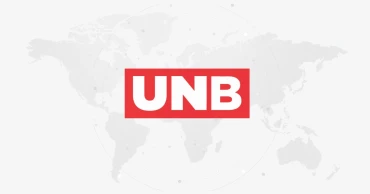
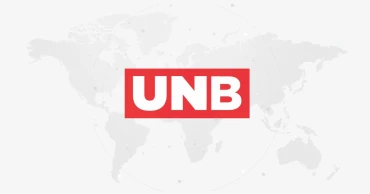
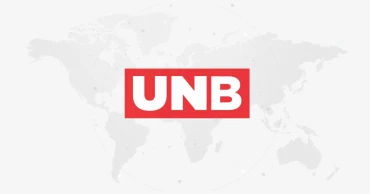
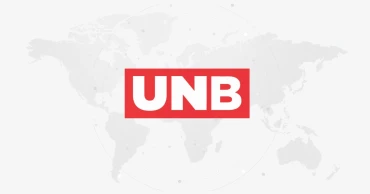
.jpg)

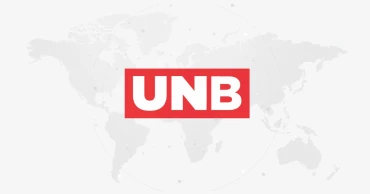
.jpg)





